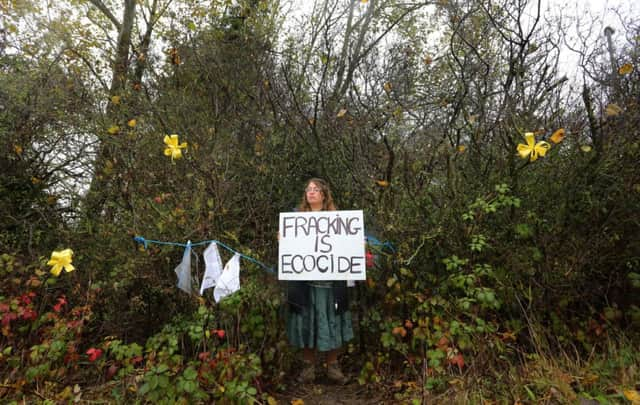‘Fracking boom could fuel increase in emissions’


A major new study published yesterday also offers a possible scenario that the boom in shale gas may have no effect on carbon dioxide pouring into the atmosphere over the long term.
Five computer models assessing the impact on global warming projected that, despite natural gas consumption increasing by up to 170 per cent by 2050, changes in CO2 emissions would range from a 2 per cent reduction to an 11 per cent increase.
Advertisement
Hide AdAdvertisement
Hide AdStudy author Dr James Edmonds, of the Pacific Northwest National Laboratory (PNNL) in Washington DC, said: “We didn’t really know how our first experiment would turn out but were surprised how little difference abundant gas made to total greenhouse gas emissions, even though it was dramatically changing the global energy system.”
Dr Haewon McJeon, an economist at PNNL who co-authored the study, said: “Abundant gas may have a lot of benefits – economic growth, local air pollution, energy security and so on.
“There’s been some hope that slowing climate change could also be one of its benefits, but that turns out not to be the case.”
Hydraulic fracturing – or fracking – produces half the CO2 of coal, and government analyses in the US showed it contributed to a decline in emissions between 2007 and 2012. But the latest findings from researchers in Germany, Austria, Italy and Australia suggest a global abundance of the cheap energy would compete not only with coal but also lower-emitting nuclear and renewable energy technologies such as wind and solar.
Inexpensive natural gas would also accelerate economic growth and expand overall energy use, reports Nature magazine.
In the study, the five teams used different computer models to predict what the world would be like in 2050 with or without a global, natural gas boom.
They included the broader economy and the climate as well as energy use and production to see how these systems interact with one another.
Advertisement
Hide AdAdvertisement
Hide AdSwapping coal for natural gas in a simple model would cut greenhouse gas emissions – a result many people expected. But, due to its lower cost, natural gas would also replace some low-carbon energy such as renewable or nuclear energy, with natural gas becoming a larger slice of the energy pie.
A swathe of land covering the Central Belt and much of the Borders and Fife was identified by UK ministers for controversial shale gas exploration last December.
The UK government has also previously admitted high levels of shale gas production could adversely affect the environment through increased traffic and pressure on water resources.
The Scottish Government has already tightened planning regulations to make it harder for fracking to take place north of the Border.